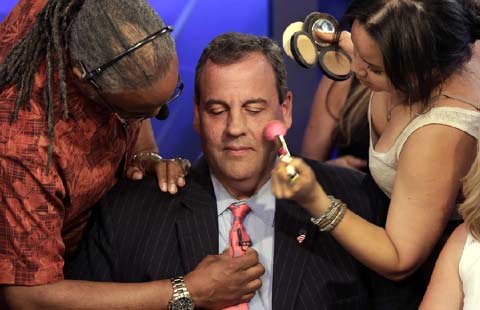Mainland car sales hit rough patch
Updated: 2015-07-30 12:13
By Paul Welitzkin in New York(China Daily USA)
|
|||||||||
Ford Motor Co is lowering sales expectations in China for the rest of the year as the auto industry continues to experience uneven demand in the mainland.
And US auto-industry consulting company IHS Automotive said the meltdown in Chinese stock markets is likely to keep buyers away from showrooms. According to an IHS report, passenger vehicle sales in the Chinese market contracted in June, continuing weak patterns seen in recent months.
For 2015, IHS Automotive has downgraded its passenger vehicles sales forecast by around 203,800 units to 19.37 million units, with growth ending up 7.2 percent year-over-year.
On Tuesday, Dearborn, Michigan-based Ford reported profits surged 44 percent in the second quarter compared with a year earlier, driven by record-setting profit in North America.
But in China, the world's the largest auto market, Ford Chief Financial Officer Bob Shanks told the BBC that he predicts car sales of 23 million to 24, down from a previous projection of 24.5 million to 26.5 million cars and trucks. "At best we're saying flat, probably down," Shanks said. If sales do fall, it would be the first time since 1990 that there has been a drop, he added.
During an earnings call on Tuesday, Ford CEO Mark Fields said, "It's clear we've seen a market slowdown." But Fields said,
"We're still very bullish on China."
"By our forecasts it's going to grow to about 30 million vehicles in the next 5 to 10 years. We're still very bullish on China," he added.
Volkswagen AG on Wednesday said its profit fell 16 percent in the second quarter due in part to weakness in China. However, Nissan, which is the biggest Japanese carmaker in China, reported strong second-quarter results this week and believes it can still reach its sales goal of 1.3 million units in China. General Motors also thinks it can sustain sales momentum this year.
Some analysts believe that China's domestic carmakers like Chongqing Changan Automobile Co and Chery Automobile Co could be vulnerable if sales start to slide more than anticipated.
"In addition to the domestic automakers, many of which have been struggling to maintain market share, the biggest players would be the multinationals hurt the most by the China downturn, so Volkswagen (including its Audi brand), GM, Hyundai, Ford and Honda," David Zoia of Ward's Automotive wrote in an email. "Among those, VW might be the most at risk, because it doesn't have a particularly strong European market to help offset the impact of China, nor does it have a big presence in the US. That puts GM, Ford and the Asians in best position to weather the downturn, because the US market right now is helping prop up their bottom lines."
David Whiston, auto analyst at Chicago-based investment research firm Morningstar Inc, said in an e-mail, "Larger automakers with the most share such as VW and GM have the most to lose from a dollar or euro profit point of view, but they also have the best scale advantages there since each has roughly 15 percent of the market.
"A smaller or medium player who can still grow, such as Ford and Mercedes, can keep investing and possibly keep growing so as to open more dealerships in new cities despite the downturn.
"On the domestic brand side, if you aren't big and don't have scale, a downturn can kill you absent help from the state."
Gary Hufbauer, a senior fellow at the Peterson Institute for International Economics in Washington, said in an e-mail that reverberations from China's stock market tumble may start to show up in a few months.
"I doubt that the stock market turmoil has yet affected auto sales, or other consumer goods, but I think the impact will show up in the third quarter," he said.
If auto sales continue to slump to the point where it starts to weigh on economic growth, what could Beijing do to help the industry?
"I'm not sure what the government can or ought to do to bolster the auto industry specifically," said Hufbauer. "Maybe lower auto taxes and build highways and parking structures.
"However, I would recommend that the government ramp up spending on 'shovel ready' infrastructure projects in general."
paulwelitzkin@chinadailyusa.com
- 38.7b yuan in State assets recovered in campaign
- China closely watches recovery of Boeing debris: spokesman
- Netizens question narrative of human trafficking victim turned model teacher
- Jing-Jin-Ji project gathers momentum as young people return
- Only living panda triplets celebrate first birthday
- Mother's death prompts escalator safety campaign

 US Marines Corpos soldiers demonstrate martial arts
US Marines Corpos soldiers demonstrate martial arts
 World's largest radio telescope being built
World's largest radio telescope being built Elvis Festival pays tribute to the King of Rock 'n' Roll
Elvis Festival pays tribute to the King of Rock 'n' Roll
 Four-color rice turns paddy field into artwork
Four-color rice turns paddy field into artwork
 Images capture modern life of a warrior monk
Images capture modern life of a warrior monk
 The world in photos: July 20 - 26
The world in photos: July 20 - 26
 Amazing landscape of China in white and black
Amazing landscape of China in white and black
 Across America over the week (July 17- July 23)
Across America over the week (July 17- July 23)
Most Viewed
Editor's Picks

|

|

|

|

|

|
Today's Top News
Embassy continues its work in aftermath of car bombing
Netizens pack heavy wallets
Delta's stake in China Eastern boosts partnership
Beijing condemns Somali attack, mourns deaths
Panda 'fakes pregnancy' to get better living conditions
China eyes deepened cooperation with overseas NGOs
Monster Hunt breaks Chinese box office record
Olympic bid panel cites city's merits
US Weekly

|

|







